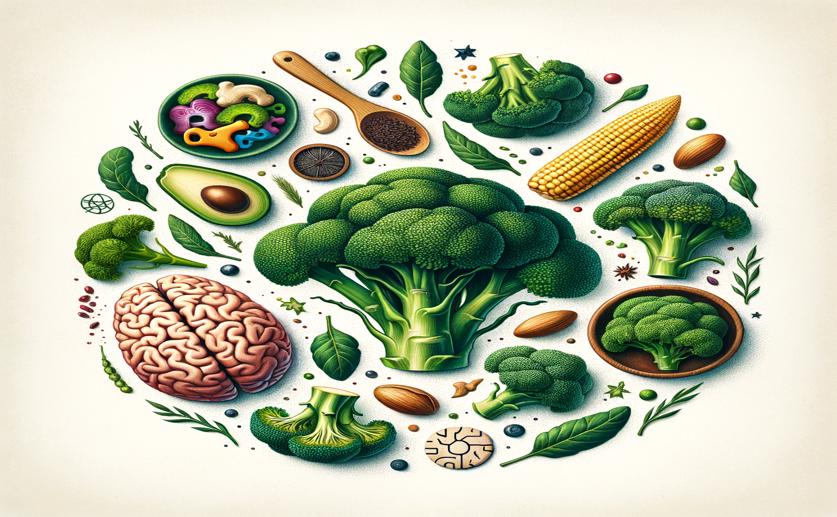
Broccoli Varieties' Chemical Differences and Brain Health Benefits
Jenn Hoskins
13th April, 2024

Image Source: Natural Science News, 2024
Key Findings
- Researchers at Cairo University found that purple broccoli has compounds that may help treat Alzheimer's disease
- Purple broccoli was richer in antioxidants and substances that inhibit enzymes breaking down a key brain neurotransmitter
- The study suggests regular consumption of purple broccoli could support Alzheimer's treatment by improving brain cell communication
References
Main Study
1) LC/MS-Based Metabolomics Reveals Chemical Variations of Two Broccoli Varieties in Relation to Their Anticholinesterase Activity: In vitro and In silico Studies
Published 12th April, 2024
https://doi.org/10.1007/s11130-024-01161-2
Related Studies
2) Alzheimer's Disease and Parkinson's Disease: A Nutritional Toxicology Perspective of the Impact of Oxidative Stress, Mitochondrial Dysfunction, Nutrigenomics and Environmental Chemicals.
3) Rational modification of donepezil as multifunctional acetylcholinesterase inhibitors for the treatment of Alzheimer's disease.
4) Anticholinesterase and anti-inflammatory constituents from Caralluma awdeliana, a medicinal plant from Yemen.
5) Acetylcholinesterase inhibitors: pharmacology and toxicology.



 10th April, 2024 | Jenn Hoskins
10th April, 2024 | Jenn Hoskins